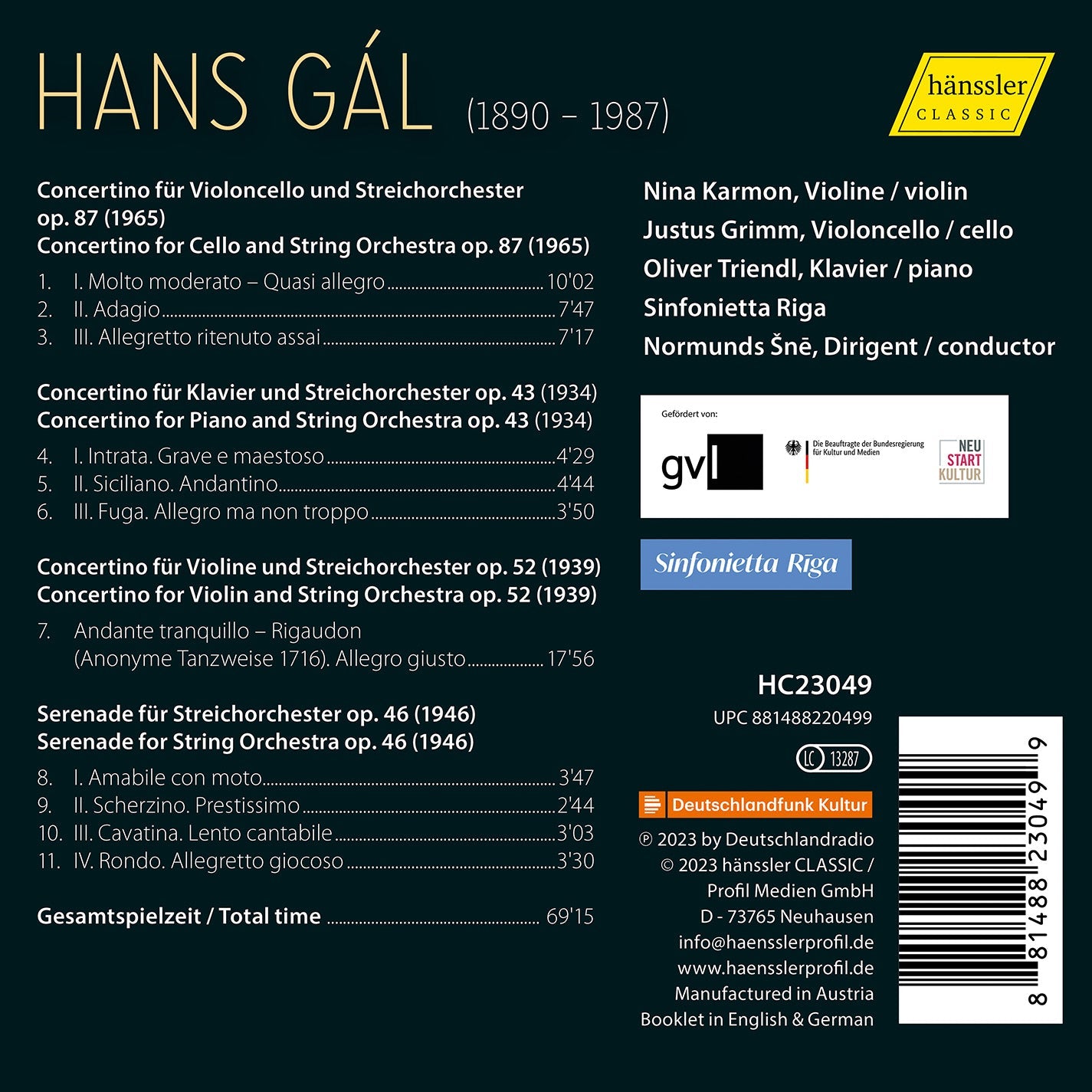Product Description:
-
Release Date: October 06, 2023
-
UPC: 881488230499
-
Catalog Number: HC23049
-
Label: Haenssler Classic
-
Number of Discs: 1
-
Composer: Hans Gal
-
Orchestra/Ensemble: Sinfonietta Riga
-
Performer: Nina Karmon, Justus Grimm, Oliver Triendl, Normunds Sne




